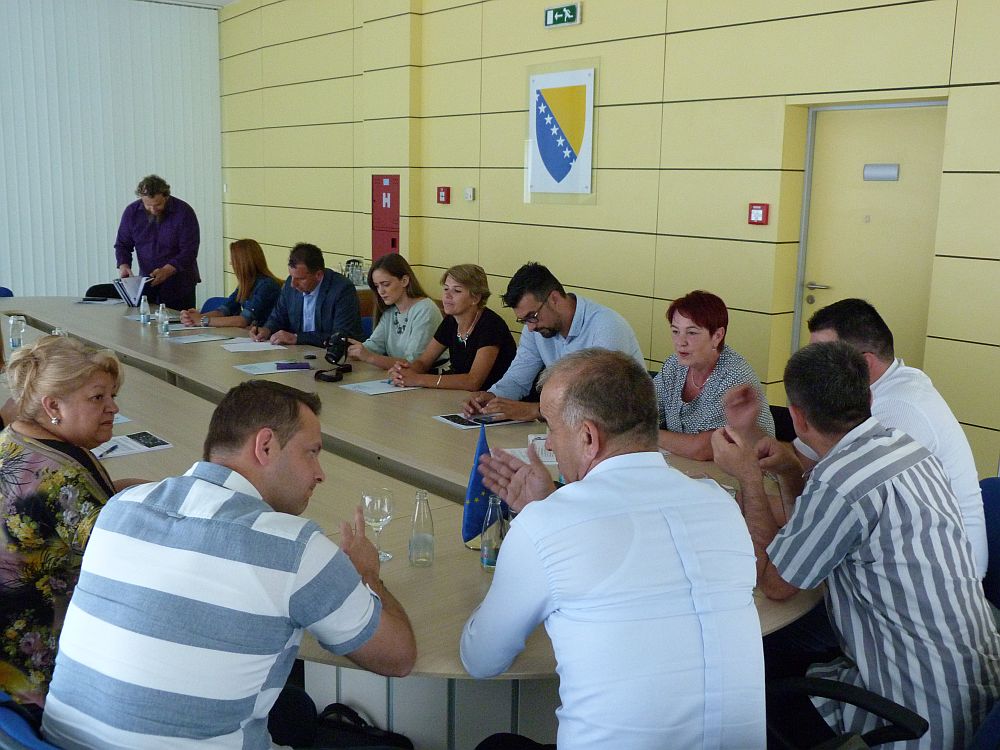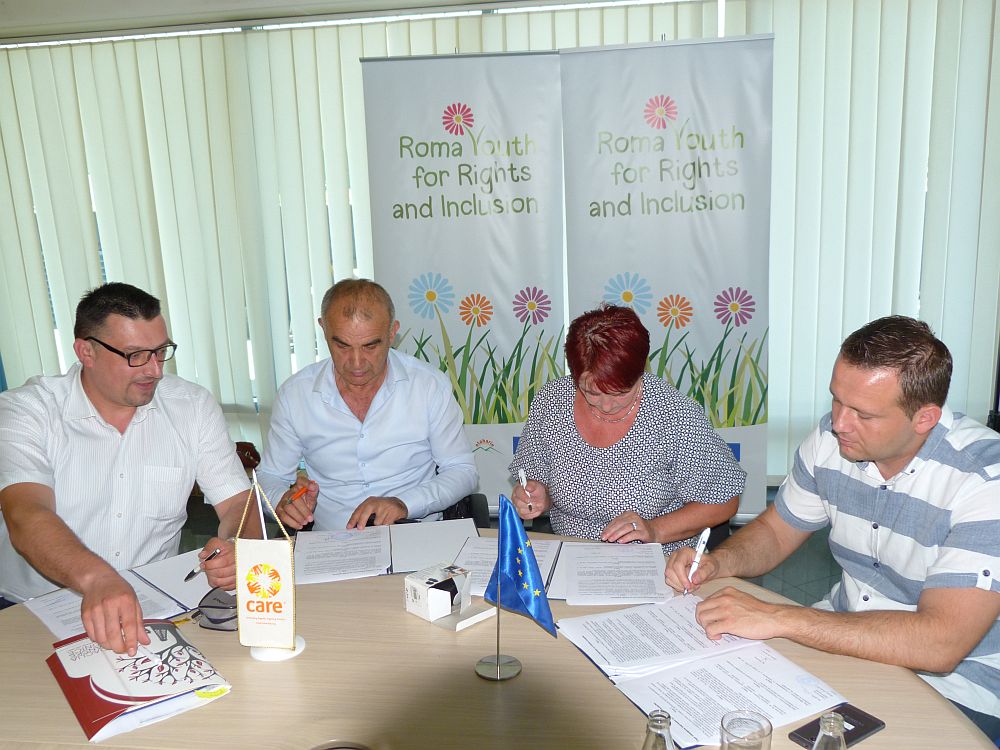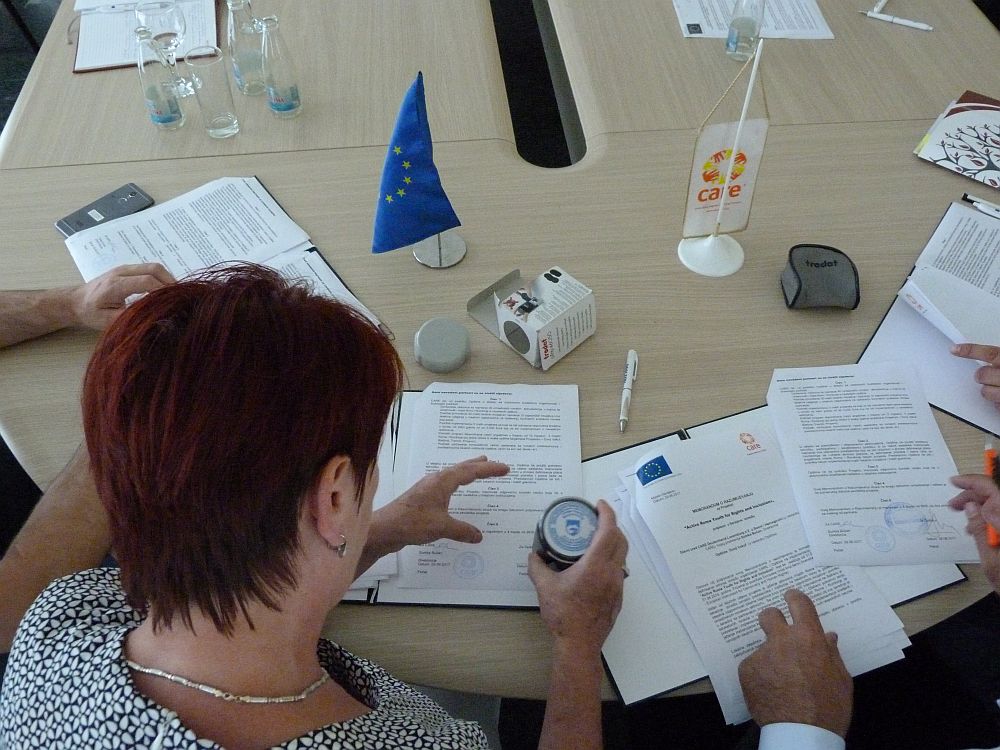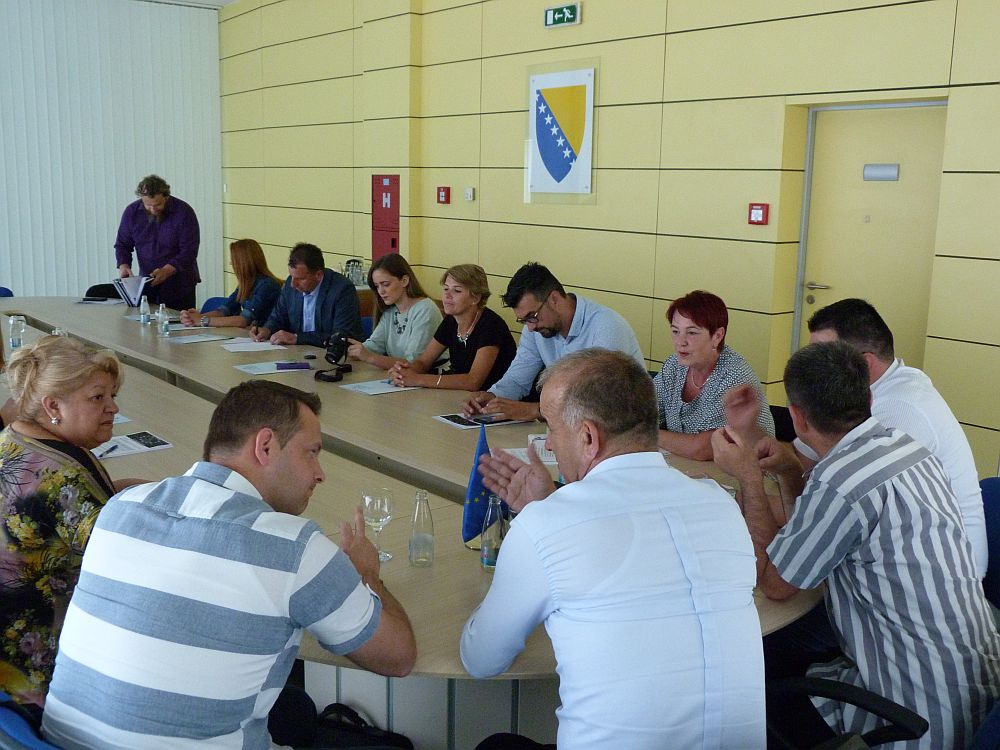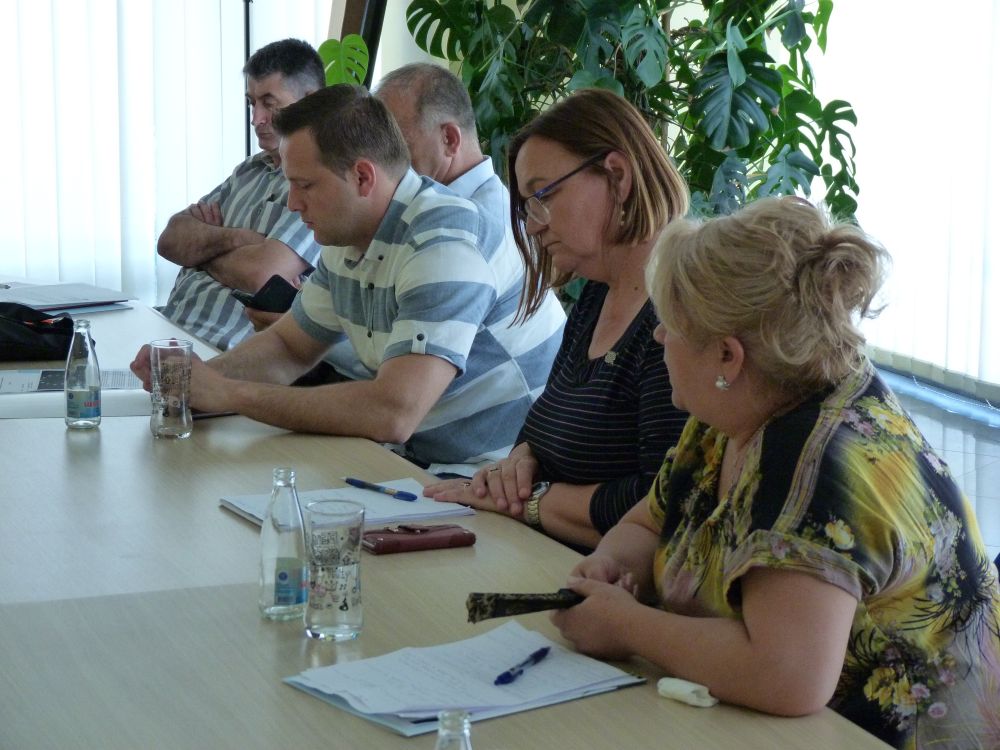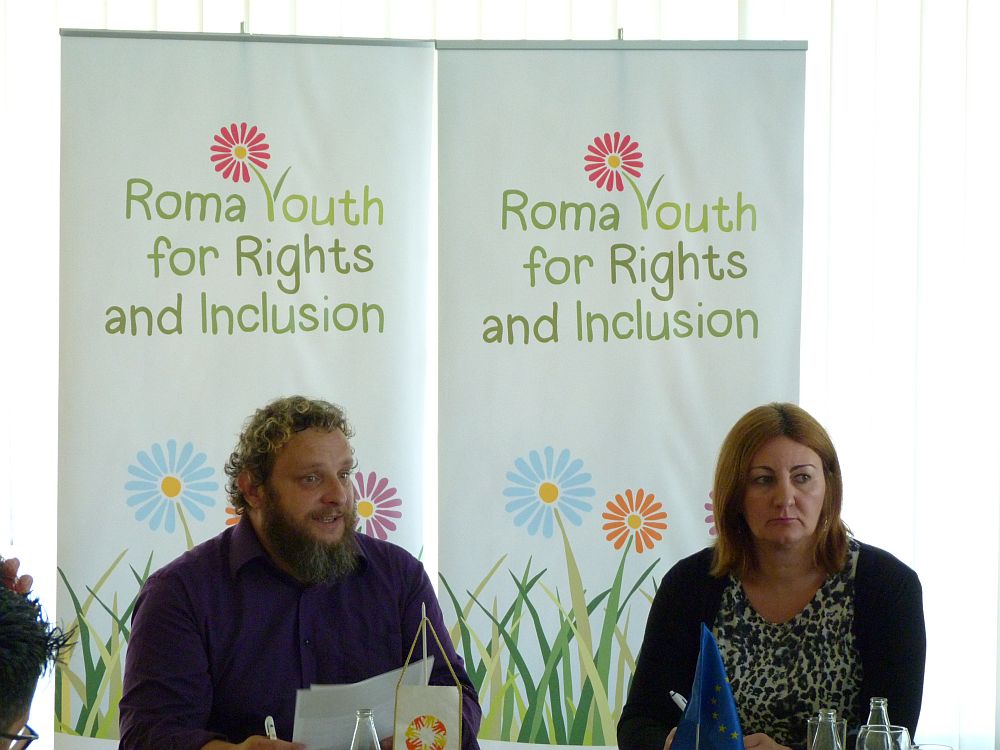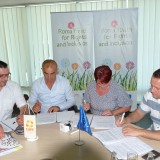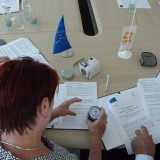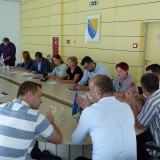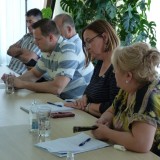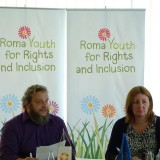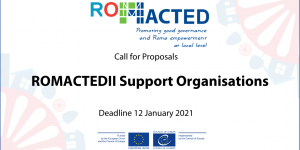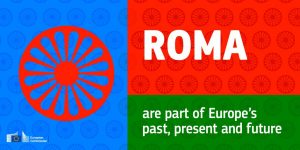According to all socio-economic parameters, the Roma population is still considered as most excluded and marginalized population. Housing, education, health care and employment are four areas in which a number of strategies and national plans for the inclusion of Roma have been made in order to make the lives of Roma in BiH better. The “work” started three years ago in the preparation of local action plans, within the EU project “Active Participation for Roma inclusion” finally gave concrete results. The municipalities of Prnjavor, Bijeljina, Donji Vakuf and Travnik were first municipalities in BiH that developed their local strategies focused on the Roma. Strategies in the form of local action plans were adopted at the municipal / city councils as strategic development documents focusing on the Roma population.
Ajša Adrović-Bešlagić, Program Manager in the EU Delegation in BiH, pointed out that signing of the Memorandum of Understanding and Cooperation today, represent continuation of the activities initiated not only for raising level of the responsibility within local institutions towards Roma population, but also on building local capacities for equal partnership between activist and non-governmental organizations and local authorities. “The European Union provides financial, but also political support for processes of the integration and inclusion of Roma population in BiH and strongly supports co-operation at the municipal level. We thank all municipalities, which are, as real positive examples, supporting this project and which are committed to increase the level of integration of Roma in their respective local communities, ” said Adrović-Bešlagić.
Saliha Đuderija, Assistant Minister for Human Rights and Refugees, emphasized that the Ministry will always support projects that involve Roma in decision-making processes and development of local strategies, in which local communities in BiH are taking greater responsibility towards Roma population living in their area. “It is expected that in the following period, following positive examples of Donji Vakuf, Travnik, Prnjavor and Bijeljina, at least 15 municipalities will go through a similar process of planning and adopting local strategies focused on the Roma population,” emphasized Djuderija.
Ljubisa Sikarac, a representative of the municipality of Prnjavor, pointed out that this municipality will provide all the support to this project, because it is focused on young people. “This municipality, can serve as a positive example because we were the first municipality that finalizes housing support for all Roma families. Prnjavor is often called SMALL EUROPE (MALA EVROPA), because we are equally care about all 17 national minorities living in this area, “said Sikarac.
Huso Sušić, Mayor of Donji Vakuf, pointed out that the care for the Roma population is not only an obligation, but also a question of true equality for all citizens in the area of this municipality. “Cooperation and support for Roma representatives and activists is crucial, because it will help us to take the right steps and collect relevant data so that we can be more efficient in our work”, Susic said.
Ljubisa Tešanović, a representative of the City of Bijeljina, emphasized that in the area of the City of Bijeljina they encounter three major challenges: housing, education and general social picture or the position of the Roma population. That is why such projects as this one, that support true integration and participation of Roma representatives in the right way, are really important for City Bijeljina.
Marica Ištvanić, a representative of the municipality of Travnik, emphasized that cooperation through this projects is extremely important because it represents a strong support to municipalities in their connection and future work with the Roma population.
Indira Bajramovic, director of the Roma women’s association Bolja Budućnost-Tuzla (partner organization on the project), pointed out that the greatest benefit of the project is the fact that over 40 young people will be educated and have the opportunity to implement their specific ideas and do their own initiatives for their Roma population.
Dragan Joković, director of Otaharin Association from Bijeljina (partner organization on the project), emphasized that this project is a great opportunity for young people to participate, but also to show that they are able to be the bearers of positive changes in their communities.
The ACTIVE ROMA YOUTH FOR RIGHTS AND INCLUSIONS project is financially supported by the European Union in total amount of 350,000 Euros, and is implemented by CARE International in the Balkans in cooperation with the partner organizations Bolja Budućnost and Otaharin. In the forthcoming period, in cooperation with these municipalities, we will launch numerous activities from local initiatives focused on direct investment in Roma communities to the small grants for improving the quality of life of the Roma population. The project also envisages the employment of 5 young Roma man and women that would be directly involved as a link between Roma communities and the municipality. During 30 months of project duration, in selected municipalities, more than 40 young Roma will be identified and educated, and they will implement more than 30 local initiatives aimed for higher integration Roma. Support will also be provided to Roma organizations operating in these municipalities, and 4 small grants for 4 projects will be allocated to address specific problems of Roma population in targeted municipalities.

